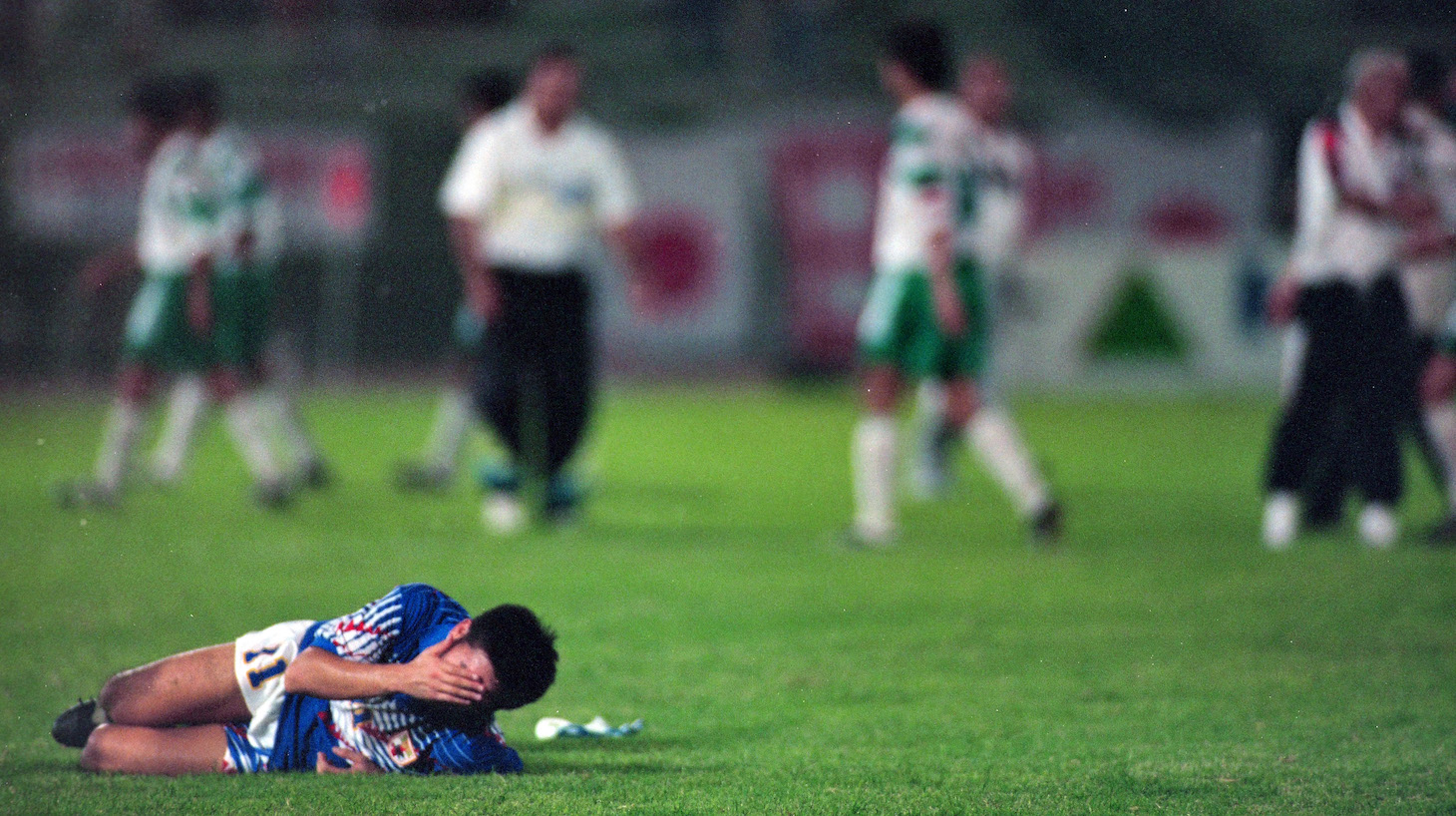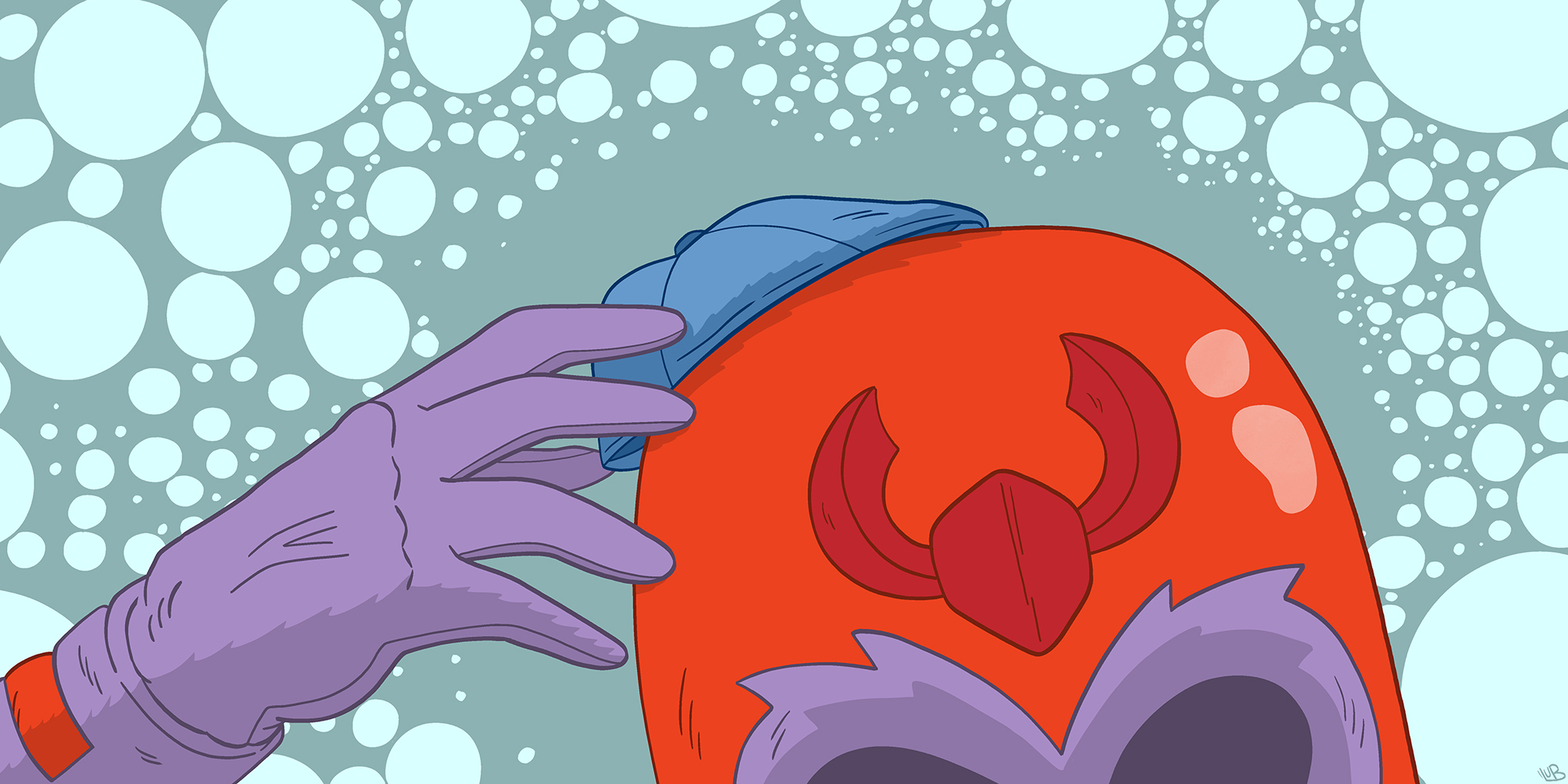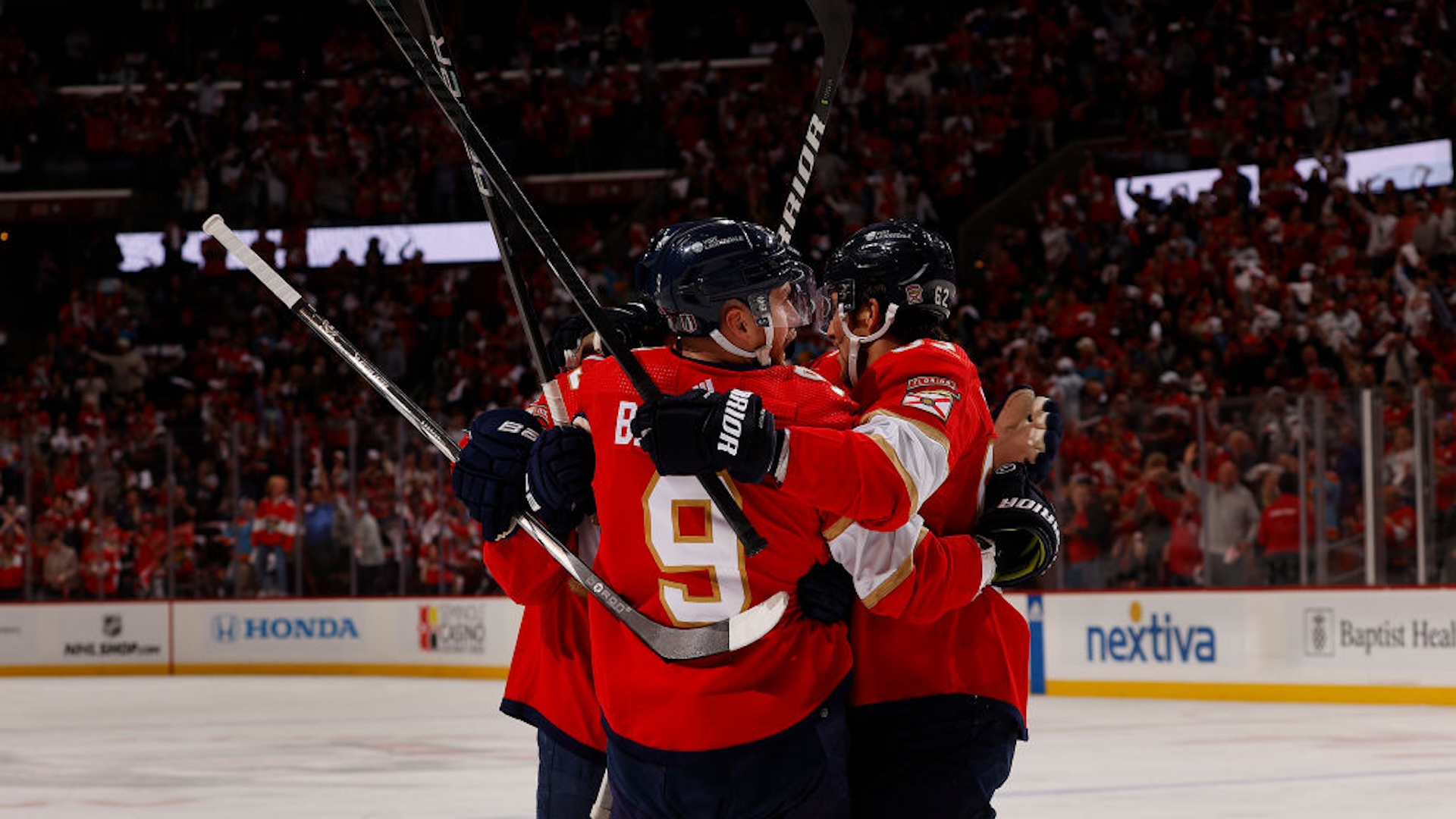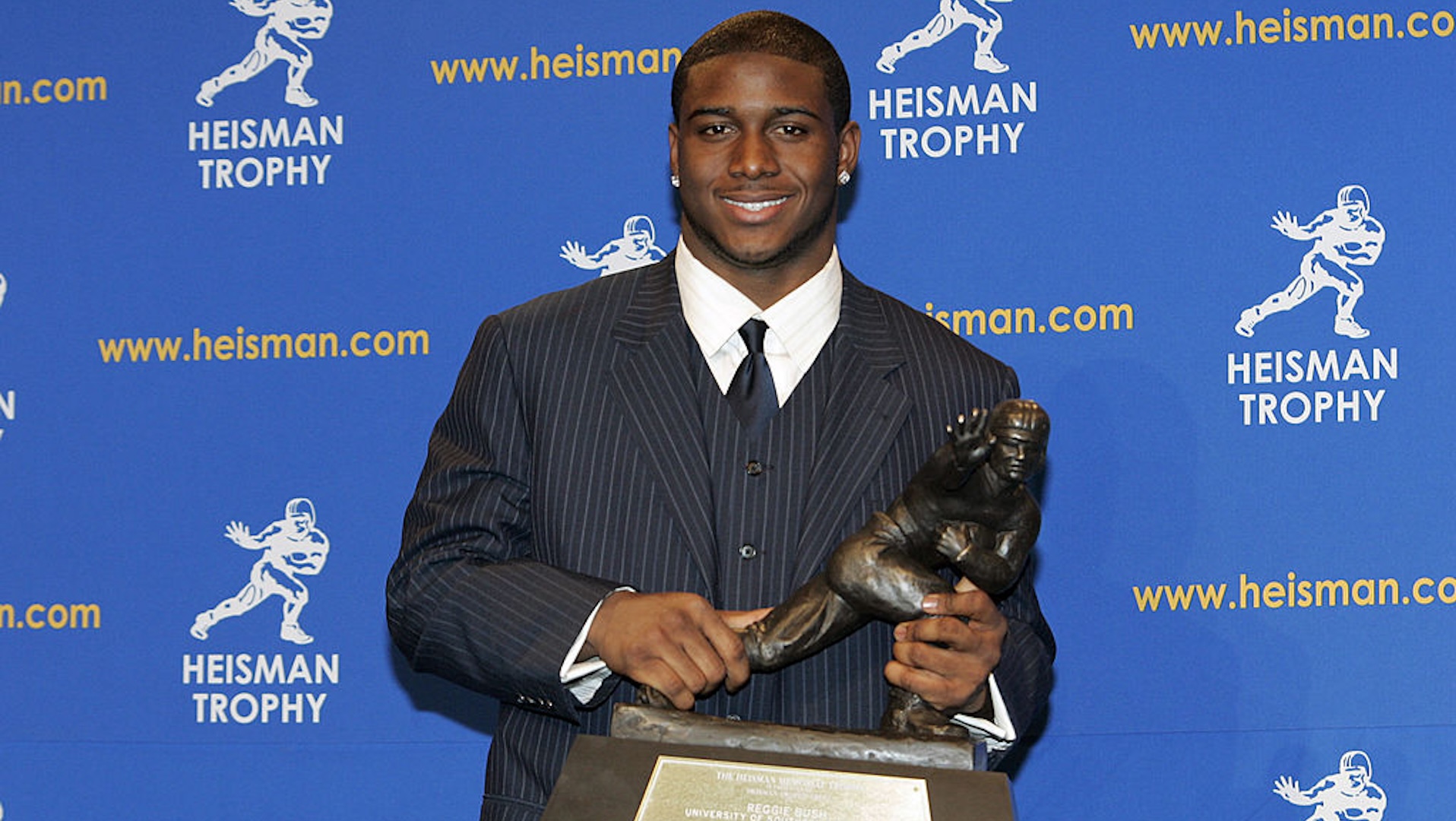What’s Changed And What Hasn’t Since I Covered Soccer In Qatar 30 Years Ago
12:03 PM EDT on October 17, 2022

“So, sir,” said the Filipino behind the front desk, “would you like a library card?”
I had been in Doha for a half-hour and I had already tumbled to the essential foundation of the Qatari economy—hire enough foreigners to do all the real work while you sit around on your oil and your investments. This, of course, is after you collect all their passports and bury them out in the desert somewhere. This struck me as a very strange system, and the desk clerk’s question had struck me as a very strange question. “Yes,” I said. “Sure, I want a library card. Where’s the library anyway?”
“Up those stairs,” the clerk told me. I sent my bags up to my room and decided to check it out. I went through the main doors and saw a very small gentleman with a very big automatic firearm sitting behind a desk. Around the room was a series of tin trays of the style off of which children of my generation ate our lunch while watching the Three Stooges, or Rocky and Bullwinkle. On these trays was a scattering of paperback books; the only one I recognized was a copy of Vincent Patrick’s excellent The Pope Of Greenwich Village. This, I assumed, was the library.
“May I see your card, sir?” asked the small man with the big gun. I have lived my life through a certain set of rules and one of them is to be polite and obliging to people with assault weapons. I showed him the card the clerk had filled out for me and he waved with his gun, “Around the corner, sir,” he said. "Isn’t this the library," I asked. “Around the corner, sir,” he replied. I nodded my thanks to him and his armament and went around the corner, and I walked into a perfectly conventional chain hotel cocktail lounge, a joint that wouldn’t have been out of place in Bloomington, Ind., Greensboro, N.C., or a hundred other places that I’d gone during my daily sportswriting days. Of course, a Filipino kid was tending bar. He knew two things about the West—Guns N' Roses and Michael Jordan. He didn’t know how long he’d be working this gig. That depended, he said, on the owners of the hotel.
The year was 1993, the year before the World Cup came to America, and I had sold the editor of GQ, the late Art Cooper, on sending me to the Asian Zone qualifying tournament. I had sold him on the idea by telling him the teams that would be competing for the two slots to come to America. The teams were Iran, Iraq, North and South Korea, Japan, and Saudi Arabia. By my calculations, each of the competing nations had invaded, bombarded, and/or occupied one of the other competing nations over the past half-century. Throw out the record books when these traditional rivals tee it up, Jim.
(This geopolitical hootenanny will become important later on. Trust me.)
This was the beginning of Qatar’s frenzied effort to become a go-to venue for international sports. Apparently, the country’s leader, Sheikh Hamad bin Khalifa Al Thani, was sports-silly. One night during the tournament, I met an English chap in the Library who’d been paid gobs of money to come and teach the sheikh how to play snooker. This was the biggest moment in his life since the day his skiffle group beat John Lennon and the Quarrymen in a battle of the bands in Liverpool. If you’re getting the impression that the Library shared very much with Rick’s Café Américain, you are not far wrong. During the tournament it was haunted by a vast assortment of godless infidels, including a massive contingent from Japan. One Japanese station had 25 people there. All of them were looking forward to a month of expense-account America, a dream that would be broken in hilarious fashion on the last night of the tournament.
Since then, of course, much has changed in Qatar. As part of the reaction to the 9/11 attacks, the U.S. largely has turned the country into an aircraft carrier. In 2010, FIFA awarded the 2022 World Cup to Qatar in a process that was strange and weird even by FIFA standards. Three years later, Sheikh Hamad apparently got tired of being sheikh and handed things over to his fourth son, Sheikh Tamim bin Hamad Al Thani, who is said to be as sports-nutty as his old man was.
But, over the 12 years since the 2022 tournament was granted to Qatar, the process of preparing for it has been a toxic mix of human rights violations and extravagant plutocracy. The country has spent a reported $200 billion in preparation for the event and, of course, very few (if any) Qataris did any of the actual grunt work. (An estimated 90 percent of the workforce is made up of migrant workers.) Migrants from all over the Middle East and the subcontinent came over to work, and many of them were gouged up to $4,000 by “recruiters” for the privilege. A 2021 analysis by the Guardian estimated that 6,500 of them had died on the job. Amnesty International has blown the whistle on the grotesque living conditions inflicted upon the migrant laborers; the AI report described conditions that made the Guardian's estimate of fatalities quite credible.
So, it appears that Qatar has become what it dreamed of being when I was there and it was just an ambitious and obscure petro-state with dreams of being a capital of international sports. I remember laughing about this with some Brits in the Library long ago.
Let’s clarify some things about booze. Yes, Qatar is an Islamic state, and the Quran forbids alcohol. However, since no Qataris do the actual work, and since you can’t hand complicated oilfield work to someone who’s just come to town from Sri Lanka, that required Qatar to make some allowance for the Americans who came to town to work the oilfields. (Telling American oilfield workers they can’t have a beer at the end of the day is a good way to ensure that you don’t have American oilfield workers any more.) The Library was an example of these accommodations. So was the country’s only liquor store, a windowless warehouse out in the desert that some Americans in the Library referred to as “the little house on the prairie.” In this case, as in so many others, expedience trumped religious doctrine, a dynamic not unfamiliar to all of the world’s most prominent monotheisms.
At the time, there were only three stadia in which the games could be played. (By contrast, Qatar has built seven new stadiums in which to stage this year’s World Cup.) The main venue was Khalifa International Stadium. The second was Qatar SC Stadium, and the third was Al-Ahli Stadium. All three were in Doha. Khalifa Stadium lay in the shadow of the Iraqi embassy, which made the match between Iran and Iraq especially piquant, particularly when rumors swept the stadium that both Uday and Qusay Hussein were watching the game from an embassy balcony. Almost all the lights in the embassy were out as the Iraqis won, 2–1. Later, it was revealed that Uday Hussein had some barbaric methods of incentivizing his players, including throwing them to starving dogs. Players who made critical mistakes, or took ill-timed red cards, were imprisoned and tortured. Every veteran soccer observer I spoke to knew this was going on. FIFA had to know, not that anyone expected that feast of fat things to do anything about it. All of us were rooting for Iraq that night, just for the players' sakes, but we kept scoping out those darkened embassy balconies for clues as to what might come next.
But the real drama came on the last night of the tournament, Oct. 28, 1993. As play opened, Saudi Arabia had virtually clinched the top spot in the finals, and Japan was in a sweet spot for the second slot. They would have qualified for a trip to the U.S. with a win in their final game, against Iraq. They also would have qualified with a draw if either South Korea or Saudi Arabia had lost their final matches.
The Japan-Iraq game ran late. Saudi Arabia beat Iran and South Korea shut out the North Koreans, 3–0. So Japan had to win. However, strange reports about the two Koreas began to filter into Al-Ahli Stadium from over at the Qatar SC. People pointed out that the only thing that the two Koreas agreed on was that neither of them liked the Japanese, and observers kept telling us that the North Koreans, knowing the situation, had not seemed too enthusiastic about their jobs against South Korea. They gave up three easy goals in the second half. Now, Japan had to beat the Iraqis.
That game came down to stoppage time. This was my first experience with a sports contest in which only the referee knew how much time really was left in the game. (I wondered what the NBA would be like under those circumstances. There wouldn’t be an arena standing after the playoffs, I reckoned.) Just as the clock passed the 90-minute mark, Japan, nursing a 2–1 lead, somehow surrendered a corner kick. Off the set piece, Iraqi star Jaffar Omran, who once had been forced to dive into raw sewage by Uday’s torturers, rose up and headed the ball past Japanese keeper Shigetatsu Matsunaga. Almost immediately after the ensuing kickoff, referee Serge Muhmenthaler blew his whistle, declaring full time. Almost as one, the Japanese players dropped to the turf as though pulled by the same string.
But their agony was nothing compared to what we saw in the Library that night. The vast Japanese press corps had seen a month on the arm in America go up the spout in the very last seconds. They were the biggest collection of sullen, mournful drunks I ever saw. We tried to buck them up. (They were colleagues after all, and the tragic loss of a lengthy expense account is a universal journalistic nightmare.) But I’m afraid those of us from non-aligned nations found it hard to contain our hilarious delight in how things had played out. (In Japan, the game is known as the Agony of Doha. In South Korea, they call it the Miracle of Doha.)
I had spent 15 days in Qatar, two weeks and change in 100-degree heat, and in what I had come to view (and cordially dislike) as a society rooted in expedient religion, indolent oligarchy, and pure labor parasitism, none of which had been redeemed by the entertaining burlesque of the last night of play. I flew out two days later. I had to change planes in London, where it was misting and raining and I flattened myself against the airport window. It was the most beautiful weather I’d ever seen. I went across the corridor and ordered the first beer in nearly a month that didn’t feel like a loophole in someone’s conception of paradise.
If you liked this blog, please share it! Your referrals help Defector reach new readers, and those new readers always get a few free blogs before encountering our paywall.
Stay in touch
Sign up for our free newsletter




